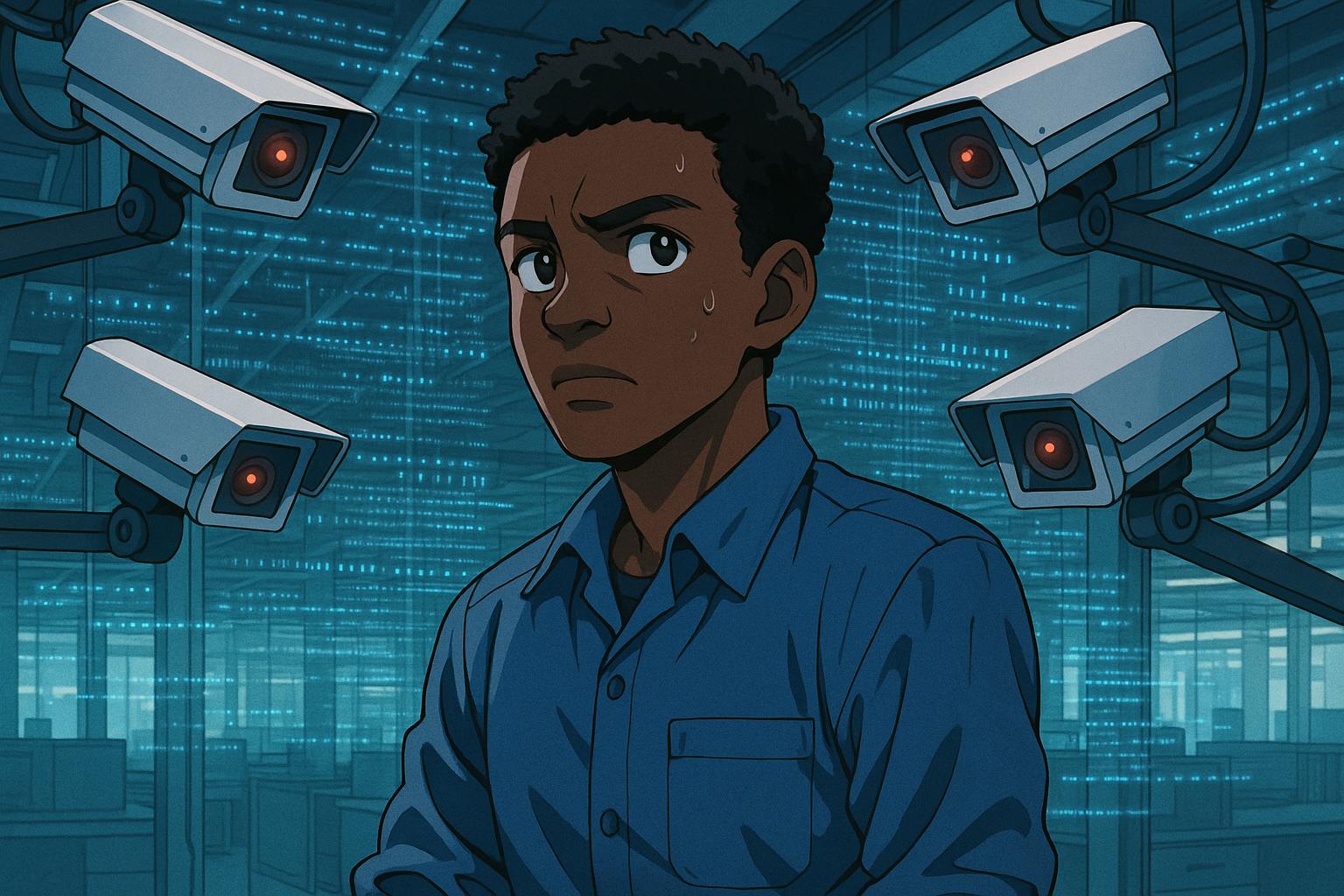Research from the Institute for Public Policy Research (IPPR) reveals that young individuals entering the workforce and black employees are notably more susceptible to intrusive workplace surveillance. This comes amid growing concerns about how pervasive monitoring practices, which include recording calls, analysing emails, and even using cameras or laptop webcams to observe employees, disproportionately affect certain demographics.
The IPPR's analysis indicates that workers in low-skilled, low-autonomy roles—such as shop floor staff, warehouse employees, delivery drivers, and call centre operators—are often subject to heightened levels of surveillance. This is particularly pronounced among young workers aged 16 to 29, who find themselves in jobs where employer trust may be lacking and turnover rates are perceived as less critical. Additionally, while black workers experience significant rates of surveillance, they often benefit from greater union representation, which may offer some degree of protection.
Joseph Evans, a researcher with the IPPR and co-author of the report, highlighted the discord between the rapid evolution of surveillance technology and the stagnation of legislative protections. He stated that while current practices might not violate the law, there is an urgent need for mechanisms that can curb excessive monitoring, which poses risks to individuals' privacy and freedom of expression. Evans emphasised that workplace surveillance is increasingly intertwined with artificial intelligence (AI), which not only enhances monitoring capabilities but can also skew the dynamics of employer-employee relationships. He noted, “Surveillance and algorithmic management are very linked… AI can create much more sophisticated insights," thus raising ethical questions about data use.
The movement towards greater surveillance could exacerbate existing inequalities in the labour market, particularly for black workers who are often in roles that expose them to more intrusive monitoring practices. Evans warned that this environment might stifle workers’ ability to express themselves, potentially impacting job satisfaction and productivity. He advocates for the introduction of legal rights that would allow workers to negotiate and consult on surveillance practices, fostering a workplace where employees feel empowered to challenge excessive monitoring.
Reports from various organisations further support the IPPR's findings, with the Trades Union Congress (TUC) noting that more than half of workers believe they are under surveillance at work, with younger employees and those in larger companies most at risk. The TUC also underscored concerns regarding the potential for discrimination as a result of unchecked surveillance, indicating that two-thirds of workers fear that monitoring could be used in a discriminatory manner if left unregulated.
Moreover, data drawn from recent studies highlights that nearly a third of minority ethnic workers report all their activities being monitored, starkly contrasting with the experiences of their white counterparts. This discrepancy raises alarms about potential discrimination, as there are indications that monitoring technologies, including facial recognition, may be disproportionately targeted towards black and minority ethnic workers.
In response to these alarming trends, the IPPR is pushing for the UK government to undertake a comprehensive review of acceptable surveillance practices, urging action to protect the mental and physical wellbeing of the workforce. This includes recommendations for transparency requirements that compel employers to disclose what data is collected and how it will be used, mirroring rights currently afforded during redundancy processes.
The Department for Business and Trade has responded with assurances that they are considering steps to ensure workers' rights evolve alongside technological advancements. Their strategy includes safeguarding against privacy invasions and algorithmic discrimination, aiming to place workers' voices at the forefront of Britain's digital transition. However, as concerns regarding workplace surveillance grow, the call for stronger regulations and protections becomes increasingly urgent.
Reference Map:
Source: Noah Wire Services
